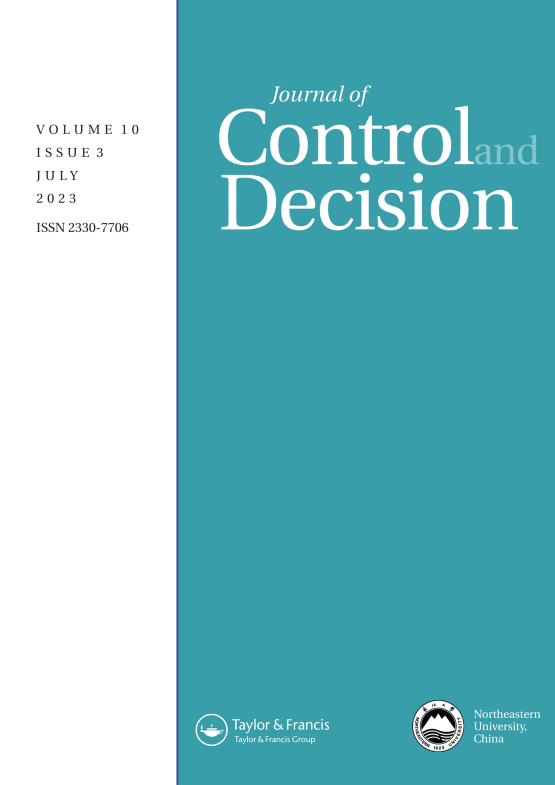Submit a Manuscript to the Journal
Journal of Control and Decision
For a Special Issue on
Fuzzy Expert System in Sustainable Energy Distribution for Smart Grid Applications
Manuscript deadline
10 May 2024

Special Issue Editor(s)
Dr. Amit K. Gupta,
Nanyang Technological University
[email protected]
Fuzzy Expert System in Sustainable Energy Distribution for Smart Grid Applications
A city is safe and productive when it offers the residents with efficient resource planning and optimized electricity utilization. Smart grid collects data from various sensors and servers for supervision of energy demand in a network. It offers several advantages mainly in energy demand management by controlling electricity consumption of users, in fault anticipation and locating power outages remotely. Smart grids use various sustainable sources to produce electricity and distribute it efficiently. Sustainable energy distribution also addresses climate change by reducing greenhouse gas emissions significantly. Though the smart grid is a two-way communication distributed energy network and uses renewable energy for production and consumption, it still has significant challenges. It lies in the substantial upfront costs associated with implementing the necessary infrastructure upgrades and technologies required for a comprehensive smart grid system. Additionally, interoperability issues between various technologies and standards can hinder seamless integration and data exchange among different components of the smart grid, cybersecurity and data privacy of interconnected smart grids make it susceptible to potential cyber threats and unauthorized access. As a result of these limitations, the full-scale adoption and applicability of smart grid technologies continue to face challenges that necessitate concerted efforts to realize its potential on a broader scale.
Sustainable energy development depends mainly on energy savings, energy production efficiency and finding alternatives to fossil fuels. The intermittent nature of solar and wind power generation poses a major challenge to the use of sustainable energy resources. Moreover, the grid operator needs to prevent overload when both sustainable and traditional modes of power generation are used. So, maintaining a balanced energy supply is another major challenge in a sustainable energy distribution system. In order to assist in the fast and efficient processing of the energy distribution system, it is critical to focus on optimizing the supply energy data. Optimization technologies like the fuzzy expert system can be used to overcome the challenges when integrating different energy systems and for optimal selection of energy resources or technologies.
This special issue holds significant importance within the context of smart grid technology and sustainable energy distribution systems worldwide. Novel research and review articles with evolving fuzzy expert systems and groundbreaking technologies contributes significantly to the ongoing efforts to create more efficient, resilient, and sustainable energy distributions are most welcome in this special issue.
Topics include but are not limited to the following:
- Fuzzy control system-based smart grid energy distribution for optimal operation and sustainable energy management
- Fuzzy efficient and hybrid control algorithm in smart grid environments for power quality and green energy management
- Fuzzy logic-based energy modeling for better energy distribution planning and demand-side management
- Fuzzy expert systems in grid optimization for load balancing, voltage control, and reducing transmission losses
- Fuzzy logic-based fault detection and diagnosis in smart grid infrastructure for proactive maintenance and seamless energy distribution
- Fuzzy logic-based control strategies in hybrid energy storage systems and optimal solutions for smart grid applications
- Evolving fuzzy control methods in renewable energy integration for managing fluctuations and optimizing grid stability
- Fuzzy-based intelligent decision support systems for sustainable energy distribution and power efficiency
- Fuzzy expert control system in cyber-resilient smart grid infrastructure for energy security and applications
- Fuzzy expert systems in predicting future energy loads for efficient resource allocation and grid management
- State-of-the-art fuzzy-based control and optimization techniques in sustainable energy distribution for autonomous smart grid management
Looking to Publish your Research?
Find out how to publish your research open access with Taylor & Francis Group.
Choose open access